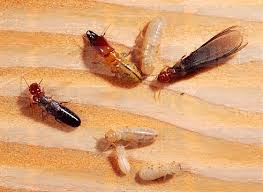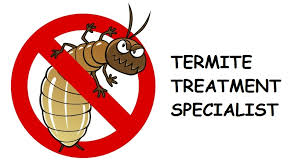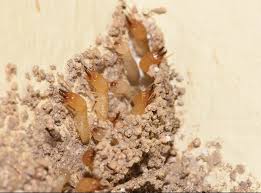Termite Control Research Can Be Fun For Anyone
There are situations in which a conventional termite treatment is particularly problematic, undesirable, or even not possible. Some situations call require specific handling, others might require alternative strategies. For example:
The treatment necessitates extensive drilling of floor slabs through wooden, tiled or carpeted floors, or through other masonry which could be ruined.
Liquid treatment may be illegal, e.g., there's a good or cistern under or too near the foundation wall.
The Basic Principles Of Termite Control Remedies
Liquid treatment is considered unacceptable for whatever reason. The treatment requires drilling of flooring slabs through wooden, tiled or carpeted floors, or through other masonry or you do not want liquid pesticides employed under/around your residence. In such situations, there are few alternatives such as termite baits or mechanical control (currently available only for houses under construction). .
Wood TreatmentsAlthough neighborhood or"spot" wood treatments stop termite activity in the treated region, they are not complete termite treatments and they will not stop termites from attacking wood in different areas. One treatment option employs the chemical disodium octaborate tetrahydrate (DOT). This borax-derived compound is applied to crucial wooden structural components in the crawlspace and regions of the framing in a home under construction.
Termite Control Research Things To Know Before You Buy
But, depending on the type of construction involved, it can be possible for termites to bypass this treatment and attack nearby untreated wood such as baseboard molding, trim, etc.. Chemicals that are acceptable for wood treatments are listed in the current edition of the North Carolina Agricultural Chemicals Manual. .
FumigationIn North Carolina, structural fumigation (occasionally called"tenting") is rarely used for our common subterranean termites. Most residential fumigations are done for drywood termites, which are relatively uncommon in North Carolina, or for wood-boring beetles particularly in log homes.
In most scenarios, the termite treatment on your house includes a one-year termite protection warranty from the pest control company. After one year, you must determine if you want to continue your contract. The cost of a renewal for a house that has been treated with a liquid termiticide is typically between $85-$200, depending on the size and construction type of the house and possibly the kind of guarantee (explained below).

The Ultimate Guide To Termite Control Research
The US Environmental Protection Agency requires that termiticide manufacturers establish that their substances can remain you could try these out successful in the soil for a minimum of five years. In most situations, these chemicals usually survive longer when applied correctly. But this 5-year requirement is not a guarantee that termites cannot (or click to visit innovative pest control may not) invade your home within a five year interval.

Annual termite contracts are somewhat like medical insurance coverages. You are paying to protect your house against the possibility of termite attack. An annual contract can be an effective method of preventing termites from causing significant damage through time. Likewise, this 5-year requirement from the EPA does not mean that the chemical is completely ineffective after 5 decades.
About Termite Control Research
It's important to understand that an annual contract does not mean that the pest control company re-treats your house each year. Unless there is some evidence of termite activity in the house, annual treatments are actually prohibited under most termiticide labels (and therefore illegal under the state and federal law).

For instance, routine house maintenance aids prevents moisture issues or other conditions that are conducive to termite activity in the region, i.e., if termites find such area, they are more likely to remain active or expand their action in that area. Be certain that the termite inspector explains any problem areas that he/she finds during the inspections so that you can correct these problems as soon as possible.
If you're not home when the house is inspected, the inspector must leave some type of notice or report regarding his/her findings. If you are not clear on the outcomes, phone the company's office and ask them to explain whether anything important was found. .
Get This Report on Termite Control Recommendations
Does my contract policy termite damageAn important point about your contract concerns damage. Many people assume that their contract automatically covers damage repairs, but that is not always the situation. Many termite protection contracts offer"retreatment only", i.e., the pest control company will retreat areas as necessary in order to fix the problem, however the retreatment is they are obligated to perform under the conditions of the type of contract.